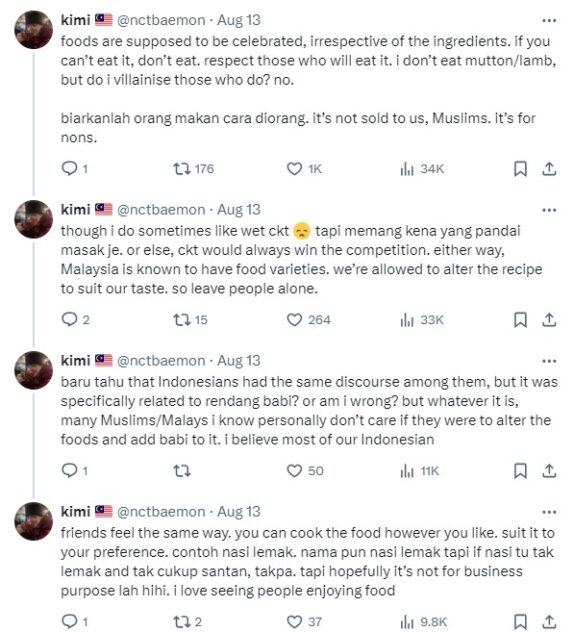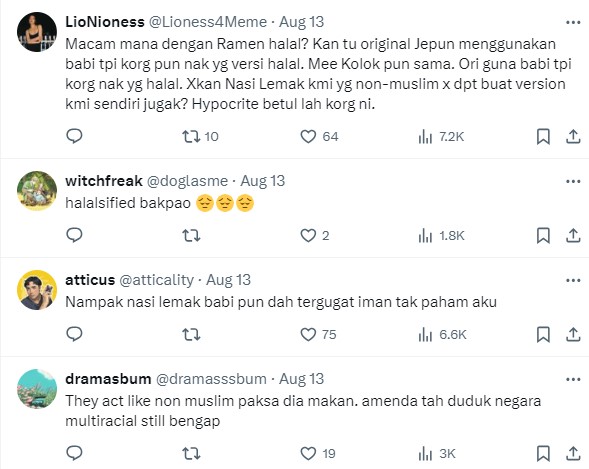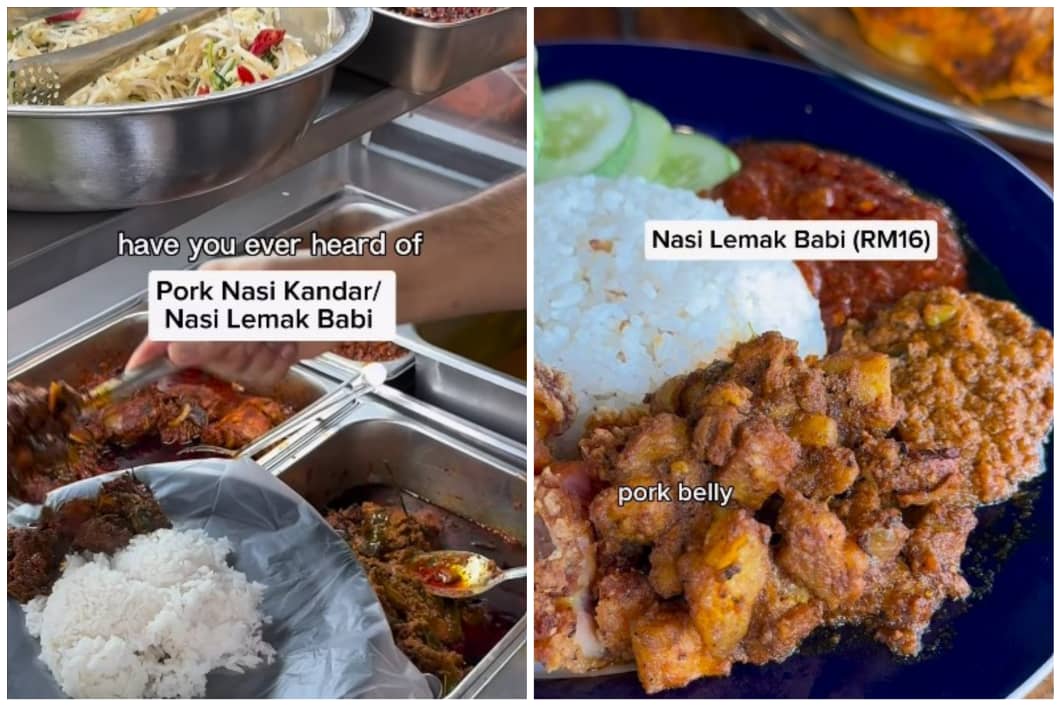“NASI lemak babi (pork nasi lemak) is disrespectful but halal char koay teow and dim sum are respectful?”
Such is the question posed on the X platform by user kimi 🇲🇾 (@nctbaemon) after some Muslim commenters posted a “haram (prohibited)” or “disrespectful” remarks to a an Instagram screenshot of a plate of RM16 nasi lemak babi.
If such sarcasm is uncalled for, especially on a food review site, imagine how racist can one be by ‘shooing’ the person who put up the nasi lemak babi post “to just go back to Tongsan (slang foe China) if you dislike Malays”.
In Kimi’s reckoning, there is certainly high degree of biasness at play if non-Muslims/non-Malays are prevented “from altering the recipe of Malay cuisine” but Muslims/Malays can modify at will what was originally a non-halal cuisine – as in the case of char koay teow or dim sum “– and then claim them as authentically theirs”.
nasi lemak babi is disrespectful but halalsified char kuey teow and dimsums are respectful? non muslims and non-Malays can’t alter the recipe of Malay cuisine but we Muslims/Malays can take theirs and alter the recipe and then claim it as authentic (ckt for instance)? ok. https://t.co/sbEYdH2wZe
— kimi 🇲🇾 (@nctbaemon) August 12, 2024
“Foods are supposed to be celebrated, irrespective of the ingredient; if you can’t eat it, then don’t eat but respect those who will eat it. I don’t eat mutton/lam yet I don’t villainise those who do?” he argued.
“Let people eat the way they desire After all, it’s (the nasi lemak babi) is not sold to us, Muslims. It’s meant for for non-Muslims.”
After all, as Kimi attested, Malaysia is known to have wide food varieties, “hence we’re allowed to alter the recipe to suit our taste” as in the case of “rendang babi” in the Indonesian context.

Many commenters agreed with Kimi that the bottom line is to suit one’s preference – or rather religious obligations – with one social media influencer rightly observed that “people who get triggered with random trivial things are those who lacks education/experience”.
After all, many Muslim food sellers, too, have innovated the Japanese Ramen and mee kolok (Sarawakian dry noodles) which are originally prepared with pork to suit the demand of their Muslim customer base.

As a Muslim chef summed up, people are always free to alter recipes based on their preferences “as long it they’re for eating and not wasting” – Aug 14, 2024










